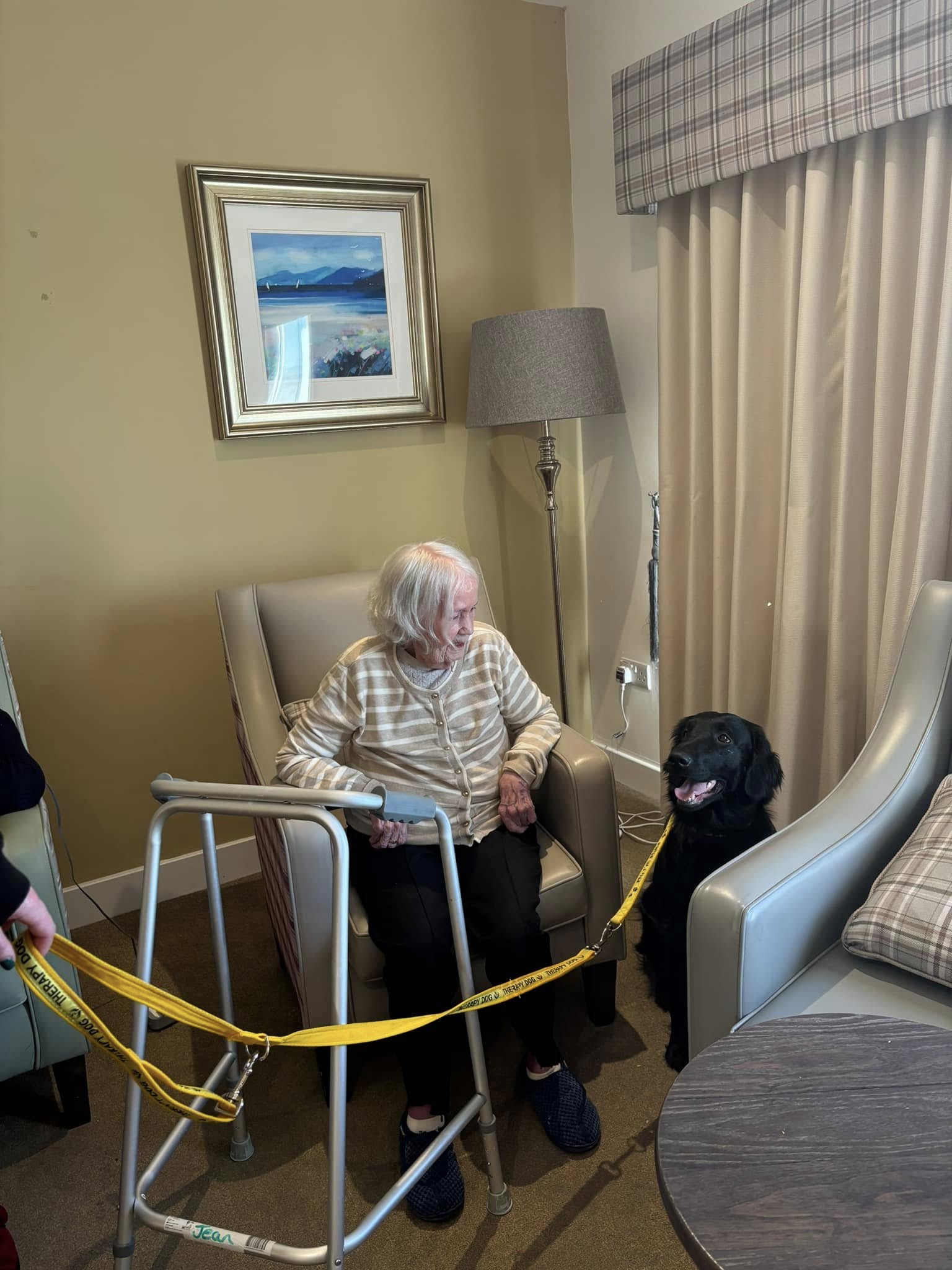How Much Do Care Homes Cost?

In the UK, there is an overwhelming demand for elderly care homes and in line with this demand, the costs are also increasing. There are a growing number of care homes that offer different levels of care and facilities to residents and with this, varying care costs, which becomes a challenge for care seekers and their families to work out affordability.
Within this blog, we will look into detail about what the care home fees cover, talk about the different levels of care available as well as what kind of financial support is available in the UK.
Care Home Fees in the UK
Each care home will offer different fees which are dependent on the level of care that is required and the facilities that the specific home offers. Generally, nursing homes or nursing care will be more expensive due to the higher level of support that's required for the individual seeking 24/7 medical care and personal care. Another factor to consider when looking into care homes is the location. Care homes that are more rural tend to cost less than care homes that are located in a popular town or city. Some care homes may charge extra for their amenities and services, whereas others may include everything within a set fee.
Most UK care homes' standard fees will include accommodation, meals and care services. However, some care homes offer an all-inclusive way lifestyle. Additional services such as visits to the hair salon, local outings and activities may or may not be included in the weekly fee, this is dependent on the home.
Typical Care Home Fees
The type of care that an individual needs plays a large part in how much their average care home fees will be. The weekly care costs for residential care start at £600, whereas nursing care starts at £800 per week due to the heightened level of support, therefore nursing fees are higher than other types of care.
Care home figures can vary based on the location of the care home. Care homes in southern regions will likely have higher fees compared to northern regions.
Conducting thorough research into your preferred care home location is essential. By doing research and comparing care homes, you can compare the fees of homes you are interested in to see which one can best meet your needs. By touring each care home, this allows you to get a feel of the setting which may or may raise concerns or questions you might have about the home.
Nursing Care Costs

Nursing care becomes essential when individuals require significant medical and personal care requirements that affect their ability to live independently. This type of care can be costly due to the levels of dependence needed from an individual. Like with other care types, nursing care will include a person's accommodation, nursing care and daily meals.
Residential Care Costs
Residential care is best suited for individuals who can live independently a majority of the time but may require daily support from a carer for help with their mobility, dressing and washing. Residential care is usually the most affordable care option as the care provided tends to be more minimal.
Residential care typically has a fixed fee structure, with any supplementary services provided at an additional cost. Accommodation, meals and personal care are included as a standard in the average weekly cost.
Dementia Care Home Fees
Dementia care is a specialist care service that caters to the specific needs of a person living with dementia. In the UK, dementia prognosis is rapidly growing, with current figures of people living with the condition estimated at close to 1 million.
Dementia care teams in care homes undergo regular training to stay in the knowledge of the latest research, technology and practices and adopt this during their care service. A care home's activity team also organises dementia-friendly activities and therapies tailored to residents' interests, which aims to alleviate the common symptoms associated with Dementia.
Respite Care Costs
Respite care provides short-term care for individuals who are living with an illness or recovering from surgery, as well as helps full-time care providers with short-term relive from their caregiving duties.
In order to determine the most appropriate care approach to care for those in need of temporary care, a care home manager will carry out a care needs assessment. This assessment will also help to determine the costs of a person's care by understanding their exact needs and their recommended length of stay.
What is Included in Care Home Fees?
The fees relating to care homes will be different for each individual, depending on the level of care needed, the location and the amenities available at the home. Care homes or nursing home costs will tend to cover personal care, medical assistance, accommodation and meals.
When looking into care homes, you should speak to the home manager to see if there are any additional charges that you should be made aware of, what is included in their fees, how they structure their fees, and if they accept funding.
Some care homes are 'all-inclusive', meaning all of their services, facilities and activities are included in their fees for peace of mind.
All-Inclusive Care Homes
All-inclusive care homes will include everything in their fees, including care, amenities, activities, additional services and excursions. These care homes typically offer all primary care types which include nursing care, residential care, dementia care and respite care. An all-inclusive care home is often more expensive than a standard care home as there are no hidden costs. The convenience of this makes it a popular choice among care seekers despite the higher weekly fees.


With the rising cost of living, the reassurance of unexpected costs becomes comforting for individuals. By visiting various care homes in your preferred area, you can look at which care home setting best suits your preferences and care needs. An all-inclusive care home will offer different amenities and care services so it's important to look around until you find the right home.
Paying for Care Home Fees
In the UK, care home fees are expected to be paid for by the care seeker or a family member if they are in a position to do so. Not everyone is in a position to pay for their care home fees. Individuals who require full-time care but lack the financial resources to pay for their care costs might be eligible for assistance from the local authority or, can apply for Complex Clinical Care. To determine eligibility for council funding, an individual undergoes a financial assessment.

A person is means tested which evaluates a person's savings, assets, as well as any private and state pensions to determine if someone is able to pay for their own care in full, partially or if they can receive local authority funded care.
For those capable of covering their own care costs, seeking advice from a financial advisor is always recommended. This ensures that an individual can manage their care home fees throughout their stay or whether an alternative option should be considered such as a deferred payment agreement.
Using Financial Support Services
Based on a person's circumstances, they may be able to acquire financial assistance from the local authority. This means that the local council covers either partial or full care costs. A means test will be conducted, assessing a person's financial situation to determine an individual's eligibility. If eligible, the local council will fund a person's care by allocating a personal budget.
For individuals requiring 24-hour care or those with complex health conditions, Complex Clinical Care could be given. This is only available to those with complex physical and/or mental health needs. Complex Clinical Care will also carry out a financial assessment to contribute towards accommodation costs. Eligibility is determined by whether a person's care needs constitute a 'primary health need'.
In cases where funding isn't available, a deferred payment agreement could be an option. With this arrangement, the local authority gives you the money for your care, and you repay the amount in full once your house is sold. This option tends to incur interest on top of the care fees so it's important to be mindful of this.
Not all care homes accept local authority funding and funding is not always guaranteed to an individual. When exploring potential care homes, you'll need to enquire whether a home accepts funding from the local authority. Before you finalise your decision, make sure you fully understand the costs involved in your care.
Self-Funding Your Care
When you pay care home fees, this is known as 'self-funding' which means that either you or a family member is responsible for covering all the costs. Typically, those who self-fund their care rely on their pension, savings or assets to pay for their care. It's important to understand that as a self-funder, you have full responsibility for paying the total cost of care home fees.
It's important to speak with a financial advisor. They can conduct a comprehensive financial evaluation and provide financial advice on how to manage your finances in order to pay for your care.
Local Authority Funding
Many people have their care funded by their local authority. If someone qualifies for funding from the local authority, they will pay all or part of a person's care on a weekly basis. Following a means test, the local council will create a personal budget for an individual. If an individual chooses a care home that is more expensive than their personal budget, a top up fee will need to be paid by the individual or family member.
The local authority support typically covers daily expenses such as accommodation, meals and personal care. Additional facilities, services or personal items will not be covered by the local authority. These additional costs would be the responsibility of the care seeker or their family.
What is Complex Clinical Care?
Complex Clinical Care is when the NHS pays for the full care of an individual with a severe illness or health condition.
To be eligible for Complex Clinical Care, an assessment will be conducted by a team of medical experts. This evaluation will look into an individual's needs and capabilities, examining their daily care requirements, to decide if NHS continuing healthcare funding will be granted. A person won't be expected to pay for personal care or medical care costs, however, a financial assessment will be carried out to determine whether a person should contribute towards accommodation costs.
All-inclusive Living in Clydebank
Situated in the charming town of Clydebank, West Dunbartonshire, Kingsacre Care Home is a modern, purpose-built care home that provides outstanding care services. Our care home accommodates 66 residents, offering private en-suite bedrooms in an all-inclusive care setting. Our 24-hour care services include Residential Care, Dementia Care, Nursing Care, Respite Care and Palliative Care, all within a group living environment tailored to meet the specific needs of our residents. Our care home in Clydebank is in a convenient position with easy access to local transport links, shops, attractions and leisure facilities.
We believe that every older individual deserves to live a fulfilling life, no matter their circumstances. Our dedicated care team takes great pride in providing an inclusive environment that is nurturing and supportive of everyone's needs, allowing everyone to have a degree of independence. Kingsacre Care Home offers an all-inclusive care package to residents for ease and convenience, providing access to a variety of facilities and services. We provide the highest standard of customised care in a communal living environment and as care needs evolve we can provide a continuum of care, ensuring a faultless transition from one care type to another.
Contact The Team at Kingsacre Care Home
To find out more about how our care home in Duntocher can help you or your loved one, our team will be delighted to answer your questions or book a show around. Call us on 0141 473 5500 or send an email to
enquiries@kingsacrecare.co.uk, and a member of staff will happily assist you.





